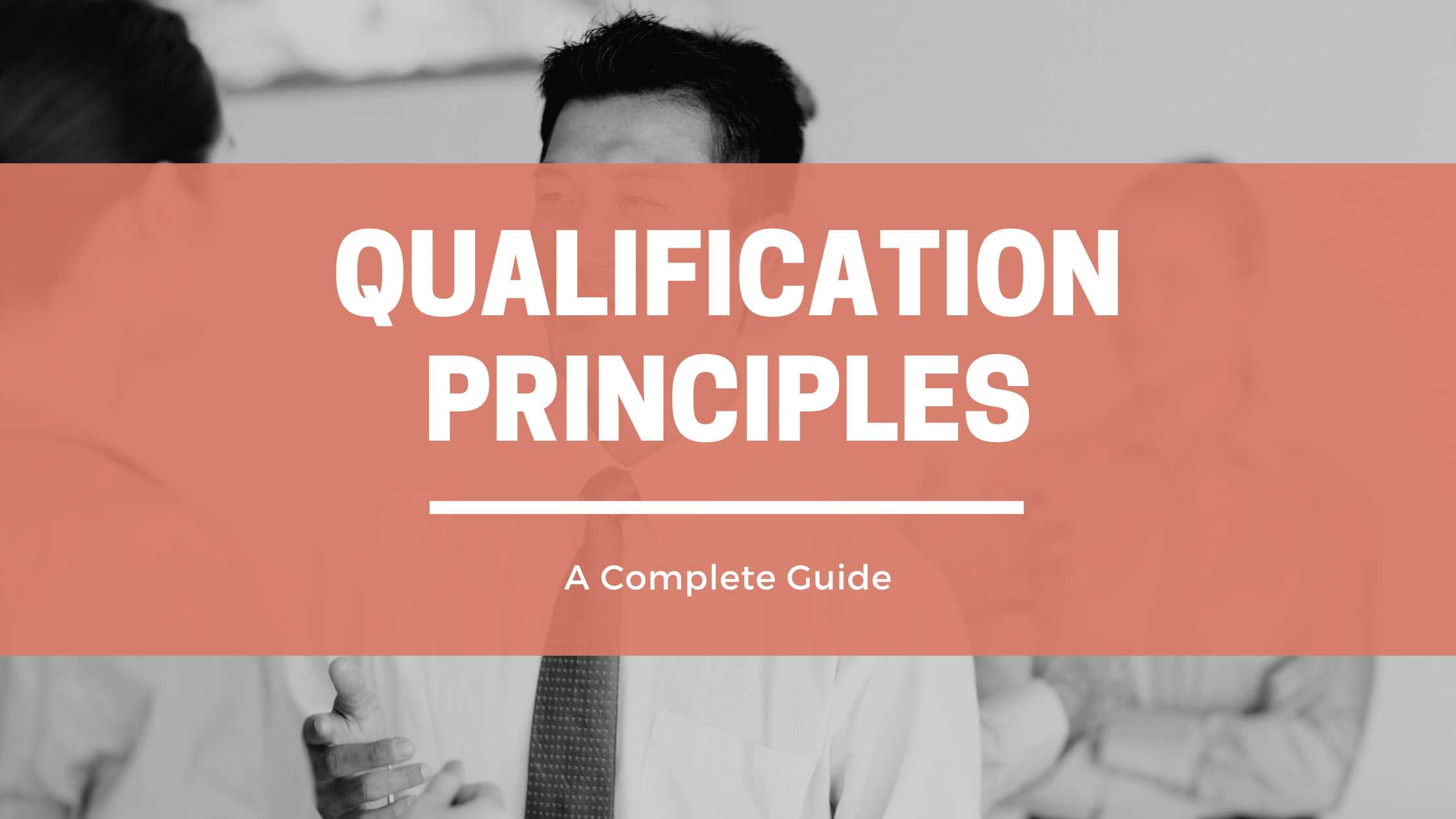Qualifying potential customers is a critical aspect of the sales process, but it can be a challenge to determine which leads are worth pursuing. Qualification principles can help sales professionals identify the best potential customers by focusing on specific criteria and qualities that indicate a higher likelihood of a successful sale.
What is qualification principles?
Sales qualification principles are the criteria used to determine whether a potential customer is a good fit for a product or service, and whether they are likely to make a purchase.
What is an example of qualification principles?
An example of sales qualification principles might include identifying the customer’s budget, their authority to make purchasing decisions, their level of interest in the product or service, and their timeline for making a purchase.
What is the importance of qualification principles?
The importance of sales qualification principles lies in their ability to help sales professionals prioritize their efforts and resources. By identifying which customers are most likely to make a purchase, sales professionals can focus their attention on those leads and increase their chances of closing a deal. Additionally, by disqualifying customers who are unlikely to make a purchase, sales professionals can save time and resources that would otherwise be wasted pursuing unproductive leads. This can help increase the efficiency and effectiveness of a sales team, leading to better results and increased revenue.
What are the types of qualification principles?
There are several types of sales qualification principles that can be used to identify good potential customers. Here are some common types:
- Budget: Determining whether the customer has the budget to make a purchase.
- Authority: Identifying whether the customer has the authority to make a purchasing decision.
- Need: Assessing whether the customer has a genuine need for the product or service.
- Timing: Understanding the customer’s timeline for making a purchase.
- Fit: Assessing whether the product or service is a good fit for the customer’s needs.
- Competition: Evaluating whether the customer is considering other options or competitors.
How to choose relevant principles
To choose relevant principles, it is important to consider your specific sales situation and the needs of your target customers. For example, if you are selling a high-end product, budget and authority may be more important factors to consider. On the other hand, if you are selling a product that solves a specific problem, need and fit may be more relevant. It is also important to gather information about the potential customer through research, discovery calls, and other interactions to identify which principles are most relevant for each lead. By considering the unique needs and preferences of your target customers, you can choose the most relevant sales qualification principles and use them to effectively prioritize and close deals.
What are the qualification principles?
The qualification principles you have listed appear to be general principles that can apply to various contexts beyond just sales. Here is an explanation of each principle:
1. Qualify by trying to disqualify
Qualify by trying to disqualify: This means actively seeking out reasons why a potential customer may not be a good fit for your product or service, rather than just focusing on why they would be a good fit. By doing this, you can save time and resources by focusing on the leads that are most likely to convert into customers.
2. Be natural
Be natural: This principle emphasizes the importance of being authentic and true to yourself in your interactions with customers. This can help build trust and rapport, which is important for building long-term customer relationships.
3. Have a growth mindset
Have a growth mindset: Having a growth mindset means being open to learning and continuously improving. This can be helpful in a sales context because it allows you to adapt to new challenges and opportunities and learn from your experiences.
4. Be human
Be human: This principle emphasizes the importance of being empathetic and treating your customers as people rather than just leads or prospects. By showing that you genuinely care about their needs and concerns, you can build stronger customer relationships and increase the chances of a successful sale.
5. Don’t expect to be perfect
Don’t expect to be perfect: This principle highlights the fact that no one is perfect, and it is important to acknowledge and learn from your mistakes. By doing so, you can become a better salesperson and build trust with your customers.
6. Don’t stop moving forward
Don’t stop moving forward: This principle encourages you to keep pushing forward even in the face of challenges or setbacks. It is important to stay motivated and focused on your goals, even when things don’t go as planned.
What are the basics of qualification?
The basics of sales qualification involve identifying the target market, developing a list of qualifying questions, actively seeking out reasons why a potential customer may not be a good fit, being authentic and empathetic in your interactions with customers, and continuously learning and improving. By using these basics of sales qualification, sales professionals can save time and resources by focusing on leads that are most likely to convert into customers and build stronger, long-term customer relationships.

